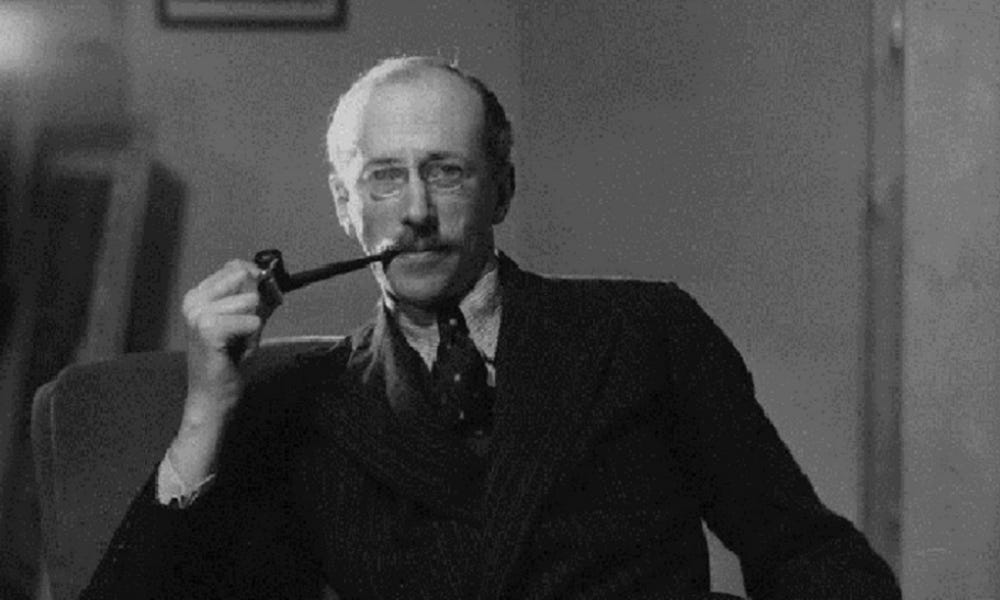What to do about "Clausewitz"
The Strategic Studies Self-Licking Ice Cream Cone
Recently, Professor Van Jackson of Victoria University of Wellington in New Zealand, wrote this post at Duck of Minerva called What To Do About Clausewitz: Saving Strategic Studies From Itself. The article is less about Clausewitz and more about strategic studies. In it, he argues that the field of strategic studies is overly focused on organized violence at the exclusion other forms of power and examining conflict in isolation, leading strategic studies to ignore the proximate causes of wars of conflict and the use of strategy to prevent wars. In other words, the goal of strategic studies should be peace, not the more effective use of force. He is also not wrong about the field’s abject failure to inform policymakers, generals, and even the general public on how to approach the foreign policy problems thus far in the 21st century. He writes, “Your job has to be more than Violence + Reason = Strategic Theory.” This is both a scalding and accurate assessment of the attitude of the legions of strategic studies professionals in and out of academia. He describes the result as a “self-licking ice cream cone” which while not an original analogy it is an apt one.
I’m extremely sympathetic to this argument. Despite having a degree in strategic studies and being in the midst of a PhD in international relations that is looking at an application of strategy in isolation, I fully agree that this is a problem with strategic studies. I did a degree in history first though which provided an inoculation against the idea that wars are isolated from their political and social contexts. To borrow a phrase that’s in vogue, wars don’t fall out of coconut trees. They exist in the context of all in which they occur and what came before them.
Here’s a recent example. Stephen Biddle, who is an excellent analyst who has written two books I think are essential, Military Power and Non-State Warfare, recently wrote an op-ed for Foreign Affairs on Ukraine’s deep strike campaign against Russia and their desire to expand it with US provided weapons. He argues against it and against the Biden Administration lifting restrictions. He repeatedly mentions the “military effect” of the strikes, deliberately or accidentally ignoring the strategic and political effects they have on Putin’s government, the fact that they undermine his party line that the war is going well, and what effects they may have on the Russian population. He wrestles with none of the strategic issues involved in the campaign. It’s a dramatic example of what Jackson has identified: the strategic studies community’s penchant to ignore anything but military factors. This view of military force as an isolated sphere that doesn’t interact at all with the political and social dynamics of a conflict is common place in the field and frankly it’s not “strategic studies” at all. It’s Non-Strategic Studies.
This is where Clausewitz comes in: his entire point was that viewing war only in terms of military factors is wrong. It was one of his major innovations. Another major theme of On War is that the political and social changes involved in the French Revolution triggered changes in warfare and that you can’t understand one without the other. This is where Jackson’s attempt to fix strategic studies falls apart for me. Jackson’s solution to the very real problems of the strategic studies field is to develop a course and syllabus wherein he, “de-emphasized (not erased) Clausewitz and Sun Tzu in favor of Antonio Gramsci and Aimee Cesaire.”
Jackson’s depiction of strategic studies as isolated, reductive, and overly focused on just one of the ways strategic actors exert power is definitely a problem. But it’s a symptom, not the disease. Jackson missed the proximate causes of the field’s symptoms. There are two.
The first cause is that the field is built primarily on bad interpretations of poor translations of an unfinished book. The school was founded in the early 20th century when translations of Clausewitz (and Sun Tzu for that matter) were extremely poor. This led to a number of cartoonishly bad interpretations like Liddell-Hart’s description of Clausewitz as the “Madhi of Mass” and… Liddell-Hart’s introduction of Samual Griffith’s translation of The Art of War that bamboozled generations of people into thinking it was about an indirect method of war.1 Most of the English translations were not done by professional translators or even by academics, but rather by military professionals like J. J. Graham for Clausewitz and Samual Griffith for Sun Tzu. They were right to do so; no one else was making older works accessible to then modern audiences and an amateur translation was better than nothing.
The publishing of the Howard/Paret translation introduced still more problems. For example they replaced every reference to “information” with “intelligence” which changes the meaning of an entire chapter, and inserted the word operations even though Clausewitz never used the German equivalent in On War. There is still no modern translation of On War done a by professional translator in English. Paret was an academic who spoke German, not a professional translator, and Howard did not speak it fluently.
Compounding the translation issue is the unfinished nature of the book. To really dig into where he was going, we have to examine how he got there. But so much of his earlier work has yet to be translated into English and sometimes doesn’t even get published in German. More of Clausewitz’s work is available in Chinese than in English. Progress is being made on this front: the University of Kansas Press has been releasing translations of his historical books in the last few years and Olivia Garard has been editing and translating some of his more unknown works. But there just isn’t enough solid work on this to go on yet. The opposite problem exists for Sun Tzu: the book market is awash with garbage pop translations and interpretations that muddy the intellectual waters. Clausewitz hasn’t been translated enough, Sun Tzu has been translated too much.
This may not seem like a big deal but strategic studies texts are full of frankly inaccurate and unsupported ideas about what these texts actually say. Take Michael Handel’s Masters of War: Classical Strategic Thought, a book considered a classic by many. Chapter 15 compares and contrasts Sun Tzu and Clausewitz on intelligence and it repeats the erroneous translation from Howard/Paret on the very first page and then proceeds with the rest of the chapter on that premise. His work on Sun Tzu is also entirely based on English commentators on The Art of War.
Strategic studies is not overly obsessed with Clausewitz and Sun Tzu, strategic studies is overly obsessed with “Clausewitz” and “Sun Tzu”: false caricatures that still dominate the strategic studies conventional wisdom. Hell, On War isn’t even a book about strategy. Clausewitz did write about strategy- two lengthy essays and many historical case studies- but you wouldn’t even know that if you just read the strategic studies literature. You’d think he was born, wrote On War, and then died. Also ignored is Marie von Clausewitz’s role in both the development of the ideas and the final preparation of the manuscript. The first problem with strategic studies is not that they’re hyperfixated on Clausewitz and Sun Tzu, it’s that they’ve yet to seriously engage with their ideas at all.
The second problem is somewhat connected with the first in that a serious engagement with On War could help correct it: it’s that strategic studies ignores tactics. The first paragraph of On War- the two first sentences of the entire book- says that you cannot look at the parts of war (strategy, tactics, logistics, etc.) independently from their context, war must be viewed as a whole. Here it is: “We propose to consider first the single elements of our subject, then each branch or part, and last of all, the whole, in all its relations- therefore to advance from the simple to the complex. But it is necessary for us to commence with a glance at the nature of the whole, because it is particularly necessary that in the consideration of any of the parts their relation to the whole should be kept constantly in view.”2 He later goes on to describe that whole as inherently political and social. He made this point right away, and I do mean literally in the first paragraph, because he lived in a world where everyone else writing about war was decontextualizing it, treating as an independent thing disconnected from a political and social context and even from the human agency of those involved with directing it, beholden only to a set of easily ascertained and linear rules like mathematics. Clausewitz wrote On War to argue against the “Violence + Reason = Strategic Theory” crowd of the 19th century. It’s the entire point of the book. The fact that the strategic studies field misses the actual point of the book they claim to uphold as foundational when it’s described in the first two sentences is the disease. Clausewitz is cited in strategic studies; not read.
If you’ve read this far, this is probably the point where you’ve figured out that Van Jackson’s argument about strategic studies is the same argument that Clausewitz makes in On War.
This problem was the impetus behind On Tactics and will be a major theme of On Strategy. Strategic studies does not just ignore other forms of state power, peace studies, non-violent strategies, resistance strategies (we’ll get to those), etc. it also ignores tactics. There’s no way to understand the relationship between strategy and tactics without understanding both. It would be like a marriage counselor only interacting with one member of the relationship without meeting or speaking with the other at all. Or writing a book about baseball strategy without any understanding of how balls and strikes work. Strategy can only achieve what tactics can deliver, and tactics can only be judged in light of strategy. You cannot just do (or study) one or the other. They’re inseparable.
Colin S. Gray, one of the bright spots in strategic studies, puts this analogy in terms of “the strategy bridge.” Strategy is the bridge between tactics and politics and in order to engineer an effective bridge, one must understand both. No engineer designs a bridge without deep analysis and understanding of both sides of the river bank, neither should strategic studies.3 But it’s not just a connection, it’s an interface. Of course, Gray came to this conclusion because he deeply understood Clausewitz’s argument and also studied tactics, but much of the rest of the community did not take Clausewitz’s argument for its purpose or misunderstood it entirely.
So far we’re all in the same car going to the same place. Jackson and I (and ironically Clausewitz) all agree on the shortcomings of strategic studies, even if we’ve identified different reasons for those shortcomings. But this is where we diverge because Jackson’s intended fix actually makes both major problems with strategic studies worse.
By deemphasizing Clausewitz and Sun Tzu, Jackson inherently cedes the field to “Clausewitz” and “Sun Tzu”- the inaccurate caricatures that dominate the strategic studies literature. It may well produce a Streisand Effect that will further reinforce those caricatures rather than neutralize them. This pushes the fundamental flaws of strategic studies forward rather than taking them on and perhaps starting to fix them.
Even leaning into Marxist and resistance theory (like Antonio Gramsci) and those who were inspired by Marxist resistance movements doesn’t get you away from On War because you can’t fully understand them without their intellectual context, of which On War is a vital part. Marx, Engels, Lenin, Guy Debord, and Mao are all downstream of Clausewitz’s description of the relationship between politics and organized violence. Marx is the only one of those four that did not explicitly write about Clausewitz and let’s be real Engels was doing all the real reading for him. Non-violent or pacifist thinkers and leaders, both Marxists (like Gramsci) and non-Marxists (MLK Jr and Ghandi) are also covered under Clausewitz’s defining theory of political conflict: he was explicit that it does not just apply when violence is employed by both sides, but also when it is employed by only one side and even when violence is merely threatened by at least one side. It’s not just them either. Howard Caygill’s book On Resistance: A Philosophy of Defiance makes Clausewitz’s idea that the defense is the stronger form the foundation of his entire theory of resistance. In all these cases, you are in a Clausewitzian definition of war and therefore the relationship between strategy and tactics applies to you, whether you want it to or not. Van Jackson isn’t wrong that strategic studies tends to ignore everything but situations where both sides are employing actualized violence, he’s just wrong about the proximate cause. It’s not too much Clausewitz, it’s not enough Clausewitz.
On War holds a unique place in strategic studies because it’s not about strategy, it’s about defining war as a social phenomenon. It’s the part that nearly every other theorist just skips and moves right onto Violence + Reason = Victory. It’s a difficult task, and it produced a difficult text that you could argue did not sufficiently achieve its goal (although I would not argue that), but you can’t just skip it. You can act like you can get out of the Car that Carl Built, but you’re still headed for the same destination.
The syllabus also continues the second major flaw with strategic studies: a lack of engagement with tactics. In that respect, it’s not unlike literally any other strategic studies syllabus. There’s not a single serious work on military tactics in the entire course. It instead jumps right to tactics of resistance: a worthy topic but one that requires some set up in terms of what tactics are and are not. You could skirt around the typical military focused texts on tactics by leaning on Marxist war/conflict texts but again the Marxist conflict and war tradition is fundamentally an offshoot of Clausewitz. You’re right back in Carl’s Car spinning circles in Carl’s Cul-de-Sac. You might as well get out and take in the view.
To be clear, I’m not arguing against including Gramsci, Cesaire, or any other of the works included on Jackson’s syllabus, I’m merely arguing that in order to fix the problems with strategic studies, you have to identify and address their proximate causes. This course doesn’t do that.
If all of these Alanis Morissette references are missing you, they’re all from her music video for “Ironic” off Jagged Little Pill (1995).
For the problems with Clausewitz interpretations, see Christopher Bassford’s Clausewitz in English. For problems with Sun Tzu interpretations, see Peter Lorge’s Sun Tzu in the West.
Graham translation, page 1.
This is also why you can take most any business strategy book you own and safely recycle it or use the paper for kindling. Almost none I’ve read bother with any attempt to connect business strategy with a foundational definition of what business it, what it is for, or how it operates at the practical level, in other words its tactics. There’s no strategy without the rest.






Superb. I've reread and will reread again. I have similar concerns about this broader subject but coming from the non-military angle. That said, as I read your post a passage came immediately to mind. "It is necessary to remember, in the first place, that this war is not one that is being fought by the military forces alone. There are economic, psychologic, social, political and even literary forces engaged, and it is necessary for us in order to defeat the enemy, to understand fully the strength of each. Nor can the investigation stop with the forces of the enemy: it must extend to each country in the world and to every people. The question of winning the war is far too complicated and far too delicate to be answered by a study of only the powers and resources of the nations in arms." This was written 106 years ago by Military Intelligence Division of the War Department's General Staff (US, of course; this was part of the War College at the time). Perhaps understandably, the Prussian isn't mention anywhere. They do, to your point, acknowledge the tactical and strategic study of war requires more than focusing on the military component. Related to the work that produced the report the passage above is from is another report from the War College, and thus the General Staff, early the same year (1918) that recognized that in the "strategic equation" of war there are four factors—combat, economic, political, and psychologic—and that the last of these is coequal with the others. That report also noted, as described in the book Words that Won the War by Mock and Larson (1939), "the Germans had long recognized this, the report continued, the Allies and America had been inclined to belittle the importance of the psychologic factor, thus making the other branches carry an unnecessarily heavy burden. The memorandum held that to attack the enemy's political homogeneity and national morale it was necessary first to discover his points of political and social weakness." I'm by no means an expert in strategic studies, but it seems to me there are hints that understanding of the problem you described was there and then forgotten.
Excellent article. I am reminded of the historical phrase "the strong do what they will, the weak suffer what they must." Your observations on the lack of proper Clausewitz translations is well noted, especially since On War is the text that is so widely studied and cited. The causes of war are founded on a myriad of factors which politicians exploit to serve their own ends. In hindsight few historians pay attention to all those same factors when shaping the future narrative. The study history of with a single isolated lens is a very dangerous enterprise.